James McCulloch: Physics, The Great Outdoors and Returning Home To Texas
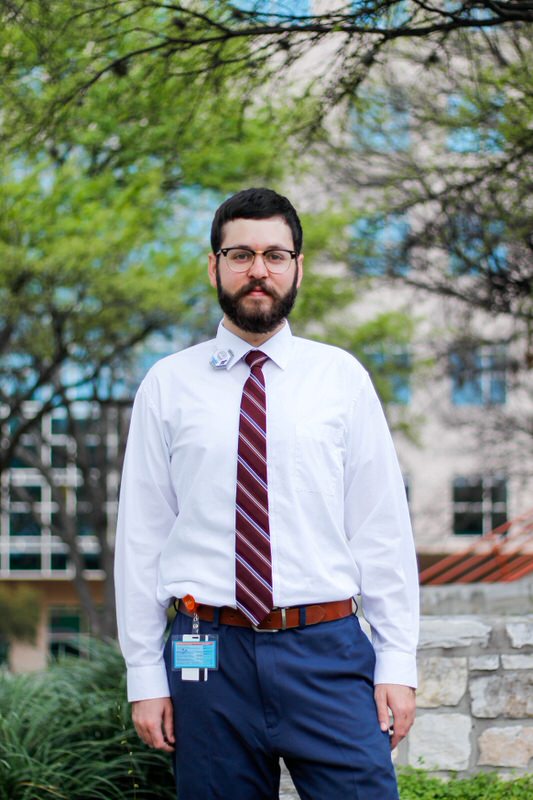 James McCulloch has always been drawn to being outdoors. When he was younger, he was part of the Boy Scouts of America where he learned basic wilderness, first aid, and survival skills.
James McCulloch has always been drawn to being outdoors. When he was younger, he was part of the Boy Scouts of America where he learned basic wilderness, first aid, and survival skills.
“I liked the outdoors and wilderness which is why when I graduated from high school I wanted to go to Idaho, there was something about being an hour and a half from Yellowstone, the frontier,” he said pensively.
While in Idaho, he studied physics where he had a class on research fundamentals which intrigued him.
“Research has never been my primary drive so when I found out about medical physics, I realized I could still do physics without doing research because it’s more clinically oriented,” he explained.
Around his junior year, McCulloch wanted more experience in medical physics so he looked at ‘s list of schools with National Science Foundation internships that had a medical physics program.
He heard back from the University of Toledo at Ohio and soon started a ten week internship shadowing medical physicists.
“I will always remember seeing a patient get a high dose procedure and I thought 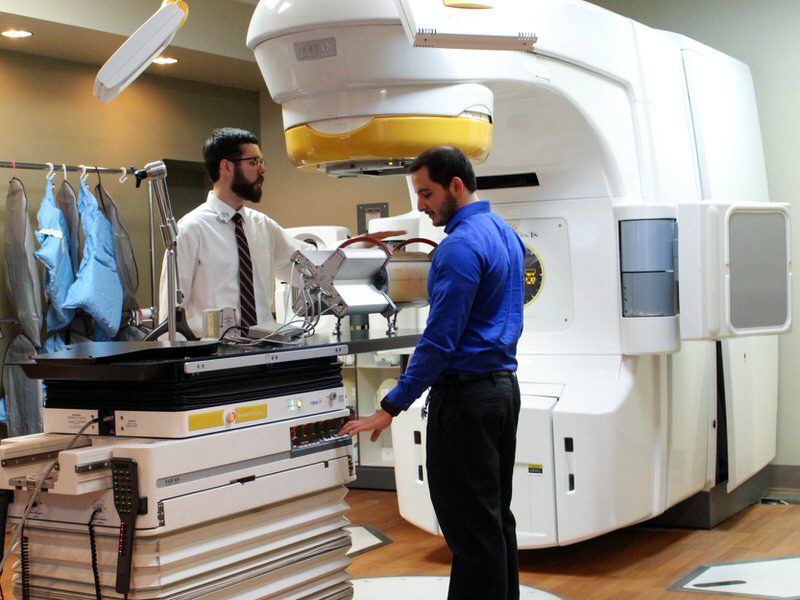 to myself wow this is really cool, we are surrounded by radiation every day and so to think that we can use elements of radiation and use it to deliver treatment—-that made me want to do medical physics.”
to myself wow this is really cool, we are surrounded by radiation every day and so to think that we can use elements of radiation and use it to deliver treatment—-that made me want to do medical physics.”
At the time, McCulloch was looking into masters and doctoral programs until his friend told him about the Doctor of Medical Physics program.
“I knew I didn’t want to do research as a career so a Ph.D. wasn’t right for me. The DMP program is a professional doctorate degree which focuses more on the clinical aspects of the medical physics. The best part of the DMP is that the residency is included in the degree.”
Immediately, he started to look and found three accredited programs in the United States.
“I applied to all but I’ve always wanted to live in Texas, my grandparents were born here so I felt like I was going back to my homeland.”
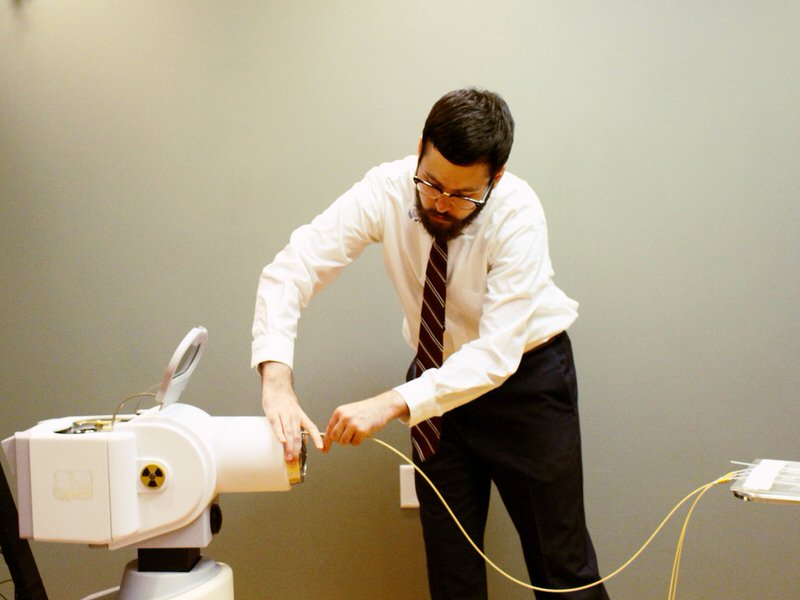 He is currently a first year student in our Doctor of Medical Physics program, one of three nationally accredited DMP programs in the nation.
He is currently a first year student in our Doctor of Medical Physics program, one of three nationally accredited DMP programs in the nation.
“It’s nice seeing medical physics in my internship and now I’m filling in gaps and seeing the bigger picture…for instance it was interesting to see how computers are able to calculate dose in a program. It’s not magic, it’s physics.”
McCulloch’s love for physics came by a chance encounter.
“I was in 11th grade and my classes were full but my friend wanted me to sign up for zero period physics with him and so even though I had a full schedule, I decided to do it,” he said. “Physics was really cool for me because we were able to see how math can help you in real life—you can put a ball on a ramp and calculate it so it lands in a cup.”
Besides school, he also serves as an Adult Leader in Venture Scouts where he mentors 14 to 21 year olds on basic wilderness skills.
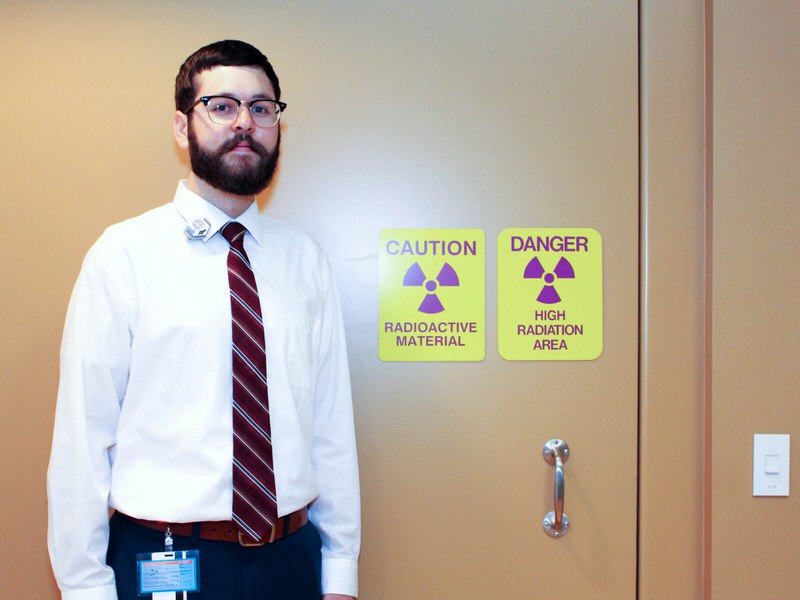 “I was really good at Boy Scouts when I was younger so this is a way for me to keep up these skills—pioneering, orienteering, canoeing, rowing,” he said. “When I was learning orienteering my physics skills helped because there are a lot of angles involved like for instance if there was a mountain in your way, you could use your map and find an angle offset to go around and then count your paces to find out where you have to go in the other direction the proper way.”
“I was really good at Boy Scouts when I was younger so this is a way for me to keep up these skills—pioneering, orienteering, canoeing, rowing,” he said. “When I was learning orienteering my physics skills helped because there are a lot of angles involved like for instance if there was a mountain in your way, you could use your map and find an angle offset to go around and then count your paces to find out where you have to go in the other direction the proper way.”
In addition to being an adult leader, McCulloch also likes to partake in geocaching. a game which uses GPS to find and hide containers, called “geocaches” or “caches” at specific locations marked by coordinates all over the world.
“There are boxes all over San Antonio and you take something and put something in there—it’s a treasure hunt,” he said. “So far I’ve found whistles, stickers but there can be good things too but I’ve never found anything good.”
After graduation, McCulloch plans to become a certified medical physicist.
“As a medical physicist, you don’t see patients, you are pretty removed but you see their charts, their CT scans and you make sure the machine is calibrated correctly so the doctor is in charge of the patient but the medical physicists is in charge of the radiation and this affects the patients so it’s an important job.”
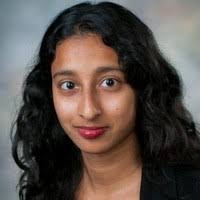 This article was written by Charlotte Anthony, marketing specialist at the Graduate School of Biomedical Sciences at UT Health San Antonio. This article is part of the “Meet The Researcher” series which showcases researchers at the Graduate School of Biomedical Sciences at University of Texas Health Science Center San Antonio.
This article was written by Charlotte Anthony, marketing specialist at the Graduate School of Biomedical Sciences at UT Health San Antonio. This article is part of the “Meet The Researcher” series which showcases researchers at the Graduate School of Biomedical Sciences at University of Texas Health Science Center San Antonio.
